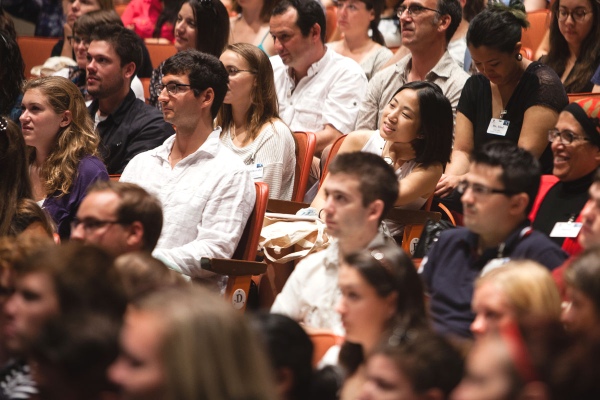Career Week prepares graduate students for job market
October 2, 2014
Share
Facing the job market after spending time researching, writing and conducting experiments can be a daunting prospect for graduate students, but the School of Graduate Studies’ new career week is helping them greet the challenge.
Hosted from October 14-17, the Career Week for Graduate Students and Post-Doctoral Fellows is comprised of a series of workshops that focus on how to apply skills acquired as part of graduate training to various career options and how to market those skills. Graduate alumni and entrepreneurship and innovation experts will discuss strategies for exploring career options in research and academia, the public sector, non-profits and industry.

“We want to broaden the range of opportunities that graduate students and post-doctoral fellows see for themselves and assist them in recognizing the transferability of the skills they have and how they may be applied outside of academia,” says Brenda Brouwer, Vice-Provost and Dean of the School of Graduate Studies. “Everyone is beginning to look further afield for careers and our ultimate goal is the success of our students and helping to prepare them for what they’ll be doing next.”
Workshop sessions will cover topics like innovation and entrepreneurship, networking and communication and identifying program-specific skills acquired to better market them for various career options. Presenters will include a number of Queen’s staff, faculty and alumni, while also welcoming guest speakers. The former president of the Social Sciences and Humanities Research Council, Chad Gaffield, will be among the panelists for the Employable You workshop and Paul Yachnin, an author of the White Paper on the Future of the PhD in the Humanities will be holding two discussions on the value of a PhD. One of Dr. Yachnin’s presentations, on the topic of non-academic career paths, is reserved for graduate student supervisors so they can offer better support to their students.
“Only about 25-35 per cent of PhD graduates are going on to academic jobs, so we created the Career Week to better prepare our students for the realities of the job market,” says Sandra den Otter, Associate Dean in the School of Graduate Studies. “Something we’ve heard from many of the people we’ve contacted to present at the Career Week is that they wish they’d had something like this while they were in graduate school.”
Faculties and departments have been supportive of the new initiative, and buy-in has come from students as well. “We get to interact frequently with our supervisors and other professors, so we have the resources available to us to learn about the academic career path,” says Rylend Mulder, PhD ’16 in the Department of Biomedical and Molecular Sciences. “It’s beneficial for us to get exposure to opportunities that exist outside of the academic sphere.”
The final day of Career Week will culminate in a networking event that will include local employers offering advice on the transition from graduate school and research training to the job search. As it is the first night of Homecoming 2014, many graduate alumni will be in attendance as well to share tips on career planning and offer advice on leveraging graduate training into careers that perhaps students and post-docs never knew they were trained to do.
A full schedule of the week's events can be found on the SGS website.